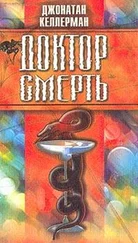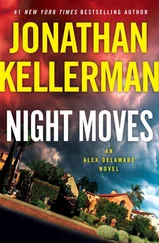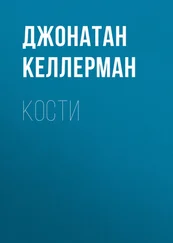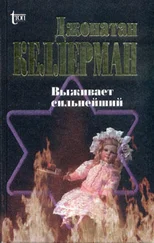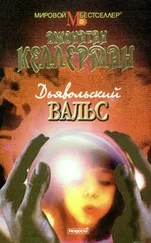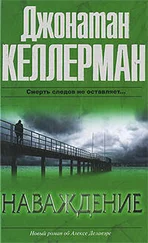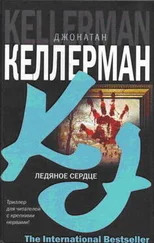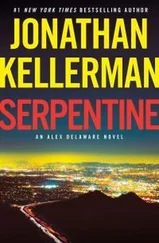Talking to Cain is like thrashing in a whirlpool.
“I’m expecting another lamb any day now,” Abel says.
“Can I help?” she asks.
“If you’d like.”
Asham’s sisters are mystified by the satisfaction she takes midwifing the ewes. Nava, particularly averse to manual labor, makes snide comments.
A man in a woman’s body. That’s you.
The gory frenzy thrills Asham, though, and until her brothers settle their differences, accepting a lamb into her arms is the closest she’ll come to motherhood.
Abel says, “I wish you’d make up your mind.”
“And if I choose him?”
“Then I hope you’ll reconsider.”
“Don’t be greedy,” she says.
“It isn’t greedy to love someone,” Abel says.
“Yes,” she says. “It is. There’s nothing greedier.”
The altar is high atop the Mountain of Consideration, one day’s journey from the valley floor.
It is a pilgrimage fraught with disappointment: the closer they draw, the more landmarks they reach, the clearer the memories of previous failures. Cain has often argued that they’re wasting good food. They ought to face the fact that they are praying to no one, and that their survival depends solely on their own efforts.
The idea terrifies everyone else, including Nava. Only Asham can see any value in it.
She knows what it is like to rely on herself.
It was in this same spirit that Cain built the wooden mule, in defiance of Adam’s warnings. When the crops came up plentiful and fat, Cain hurled the sheaves at his father’s feet and crowed.
You are cursed. Not by Heaven, but by your own lack of imagination.
However stern Adam’s rebuke, Asham observed that he did not hesitate to eat from Cain’s harvest.
The journey began at sunrise; by midday they are trudging along, weak from having fasted. Abel carries his offering on one shoulder and guides Yaffa with his free hand. Cain and Nava lean on carved walking sticks. The wind whips Asham’s hair, and she lags behind, breathless with anxiety. If she feels especially jumpy, it’s with good reason. With the brothers still at loggerheads, her father has declared that she will be given to the one whose offering draws favor.
She’s not sure how seriously to take this threat. He has made similar pronouncements in the past. But the zeal with which he charges up the hill — Eve following him like a shadow — tells her this time will be different.
Cain falls in next to her.
“Cheer up,” he murmurs. “What’s the worst that can happen? Me. Lucky you. Anyhow,” he says, giving her a dig in the ribs, giving her a heretical wink, “I wouldn’t worry too much.”
She wishes she shared the confidence of his unbelief.
It seems an accepted truth that Cain is the clever one, Abel the handsome one. To her it’s never been quite so clear. That mode of thinking — the assertion that if one person is blessed with one talent, the other must have an equal talent; the idea that equity inevitably prevails — grates hard against her experience. It’s true that she finds Abel easy to look at. But she can just as easily look away, knowing that she can always come back to him, and find him unchanged.
There is beauty in imperfection.
Beauty in its evolution.
On the surface, her brothers would seem mismatched to their pursuits. Better Abel to preside over the land, Cain to cope with the bloody realities of livestock. But Asham knows better. For the most part, sheep are self-contained. They reproduce themselves. They emerge fully formed. They allow Abel to ply his benevolence from a comfortable distance.
Farming is different. It is hand-to-hand combat, a constant negotiation with an unwilling partner. It is the slaughter of weeds, the massacre of thorns and thistles. It drafts unruly trees and drills them into orderly rows, inducing them to produce fruits that are larger and bigger every season. And it is there, on the line between coaxing and coercion, dreaming and plotting, that Cain thrives.
“Here,” he says, handing her his stick. “You look like you could use it.”
He leaves it with her and goes ahead to walk beside Nava, glancing back to wink at Asham again. She thinks he is more handsome than anyone will admit. His scaly green eyes ripple like rising grass. His dark brow holds the force of storm clouds that frighten and sustain them all. For better and for worse, he moves her.
Exhausted, the family huddles together on their knees. A year’s worth of weather has erased the traces of their last offerings, and as Adam raises his hands in supplication, praying that their gifts be accepted with favor, the howling wind drowns him out.
He finishes his prayer, and they rise.
Cain offers first, a bundle of leftover flax. Adam ordered him to bring wheat, but Cain refused, arguing that the crops were his, to be distributed as he pleased. Grow your own and you can do what you like.
He places the limp, fibrous mass atop the stone altar. Nava pours out a libation of foul-smelling retting water and they reconvene at a distance, watching the heavens for a sign of forgiveness.
The heavens remain expressionless.
Cain smiles sourly. The silence vindicates him, even as it robs him of a wife.
Abel has brought his finest newborn lamb. Three days old and unsteady on its legs, it could not manage the walk, and he has bound it hand and foot. As he carries it to the altar, it raises its head in search of its mother, wailing miserably when it cannot find her.
Yaffa burrows into Asham’s shoulder.
Abel sets the lamb down and leans over it, soothing it, stroking its belly.
Cain says, “Get on with it.”
Abel’s hand trembles as he raises the slaughtering stone. He glances back at Asham, as if seeking her permission. She looks away and waits for the scream.
It does not come. She looks again. The lamb is squirming. Abel has not moved.
“Son,” Adam says.
Abel shakes his head. “I can’t.”
Eve moans softly.
“Then let’s go,” Nava says.
“We can’t leave the poor thing here,” Yaffa says.
“It cannot come down,” Adam says. “It is consecrated.”
That is precisely the sort of obscure logic that drives Cain mad, and he makes an exasperated noise and strides forth to snatch the stone from Abel’s hand.
“Hold it down,” he says.
Abel is wan, useless.
Cain turns to the rest of the family, appraising them one by one before addressing Asham.
“Help me.”
Her heart punches.
He says, “Do you want to be finished here, or not?”
As though compelled by an outside force, she approaches the altar.
The lamb squeals and kicks and she cradles its hot body.
“Keep it still,” Cain says. “I don’t want to cut myself.”
She grasps the lamb’s feet. It bucks wildly. Terror has doubled its strength and she nearly lets go. Cain grabs it.
“Listen,” he says. His voice is gentle. “It’ll be over in a minute. The tighter you hold him, the better it’ll go for both of us. For all of us. Tight. Tighter. Good. Good.”
Asham shuts her eyes.
Warmth jets across her arms.
The kicks slow and then cease altogether.
She swallows back vomit.
“It’s over.”
She opens her eyes. The dripping stone hangs by Cain’s side, and he is gazing testily at the mute sky. Abel stares in horror at the lamb’s carcass.
Though weak herself, Asham rises, takes him by the hand, and leads him away.
They have not descended far when the top of the mountain explodes.
The sound splits Asham’s skull and the light blinds her and she is cast down and awakes to Yaffa screaming and Eve lying in Adam’s arms and Abel cowering and Nava groaning in pain.
Читать дальше

